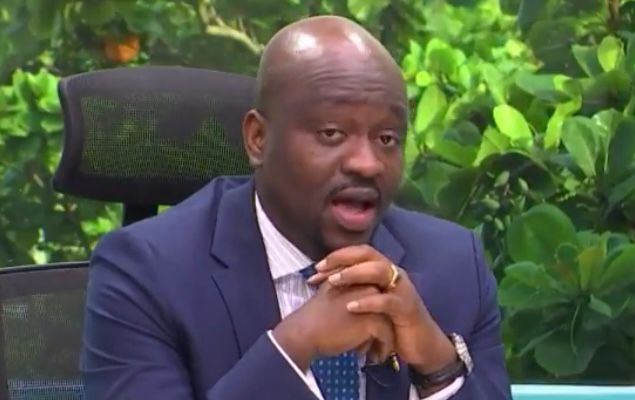The unfolding drama surrounding the investigation of Bernard Antwi Boasiako, also known as Chairman Wontumi, the Ashanti Regional Chairman of the New Patriotic Party (NPP), has taken a new turn, sparking heated debate and highlighting the complex interplay between politics and law enforcement in Ghana. The Economic and Organised Crime Office (EOCO) initiated an investigation into Chairman Wontumi for alleged offenses encompassing fraud, causing financial loss to the state, and money laundering. Furthermore, the investigation extends to his alleged involvement in an international organized crime network, necessitating collaboration with international law enforcement agencies. This complex and multi-layered investigation has placed Chairman Wontumi in the crosshairs of the law, raising questions about due process, political influence, and the impartiality of state institutions.
The situation escalated further when members of the Minority caucus in Parliament, led by Minority Leader Alexander Afenyo-Markin, staged a sit-in protest at the EOCO headquarters. Their demand? The immediate release of Chairman Wontumi. This unprecedented act of solidarity within the political sphere has drawn sharp criticism from various quarters. The image of seasoned lawmakers, including reputable lawyers and businessmen, sitting on the floor of a law enforcement agency’s premises has become a symbolic representation of the perceived erosion of decorum and the escalating tensions between political factions. Critics argue that this display not only undermines the authority of EOCO but also sets a dangerous precedent for political interference in legal processes.
Hamza Suhuyini, a communication team member of the National Democratic Congress (NDC), voiced strong disapproval of the Minority’s actions. He characterized the sit-in protest as a sign of the opposition party’s decline, suggesting that such partisan displays erode public trust in the political system. Suhuyini’s critique went beyond the theatrics of the protest, highlighting a deeper concern about the potential for political maneuvering to shield individuals from due process. He argued that allowing political considerations to influence investigations into alleged criminal activities, especially those involving financial impropriety and organized crime, poses a significant threat to the rule of law and undermines efforts to combat corruption.
The central issue revolves around the balance between demonstrating political solidarity and respecting the integrity of ongoing investigations. While the Minority caucus frames their actions as a demonstration of support for a colleague facing investigation, critics view it as an attempt to obstruct justice and exert undue influence on EOCO. This tension underscores a fundamental challenge within democratic systems: ensuring that political affiliations do not compromise the pursuit of justice and the impartial application of the law. The optics of the sit-in, particularly the participation of prominent legal professionals, further complicate the narrative, raising questions about the ethical implications of such actions.
The investigation itself raises significant concerns. The allegations against Chairman Wontumi, including financial crimes and links to international organized crime, warrant thorough and unbiased scrutiny. EOCO’s pursuit of asset recovery underscores the gravity of the alleged offenses and the potential for significant financial losses to the state. The collaboration with international agencies further emphasizes the complexity and reach of the investigation, suggesting a network that transcends national borders. The public has a vested interest in the transparency and efficacy of this investigation, and any perception of political interference undermines public trust in the ability of institutions to hold powerful individuals accountable.
The ongoing saga surrounding Chairman Wontumi’s investigation serves as a microcosm of broader challenges confronting Ghana’s political and legal landscape. It highlights the delicate balance between political expression and the impartial application of the law. The actions of the Minority caucus, coupled with the serious allegations against Chairman Wontumi, have intensified public scrutiny of the intersection between politics and law enforcement. The ultimate outcome of this investigation, and the subsequent public discourse, will significantly impact perceptions of accountability and the integrity of Ghana’s institutions.














